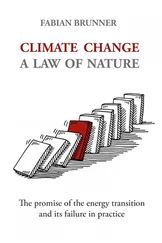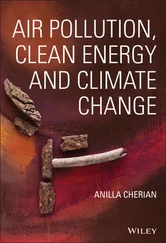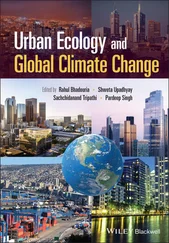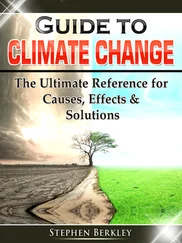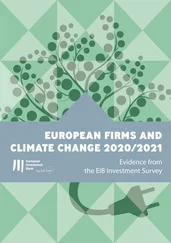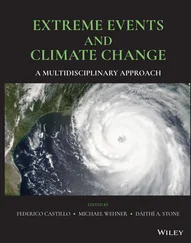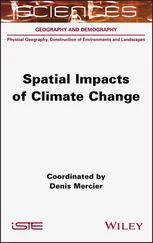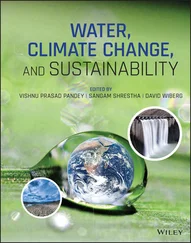 The ozone layer in the Earth’s atmosphere is sort of like sunscreen for the planet — ozone intercepts some of the ultraviolet radiation that causes sunburn and skin cancer. The use of chlorofluorocarbons for refrigerants and other purposes caused the ozone layer to get thinner, resulting in an ozone hole over Australia and New Zealand. Partly as a result, Australians have the highest incidence of skin cancer on Earth. In 1987, the nations of the world came together to regulate the use of these chemicals, and their concentration in the atmosphere continues to decrease and the ozone layer is making a comeback. But now, increasing average temperatures in Australia and New Zealand are compounding these effects — one problem reduced by international cooperation is still affected by the lack of international cooperation on another.
The ozone layer in the Earth’s atmosphere is sort of like sunscreen for the planet — ozone intercepts some of the ultraviolet radiation that causes sunburn and skin cancer. The use of chlorofluorocarbons for refrigerants and other purposes caused the ozone layer to get thinner, resulting in an ozone hole over Australia and New Zealand. Partly as a result, Australians have the highest incidence of skin cancer on Earth. In 1987, the nations of the world came together to regulate the use of these chemicals, and their concentration in the atmosphere continues to decrease and the ozone layer is making a comeback. But now, increasing average temperatures in Australia and New Zealand are compounding these effects — one problem reduced by international cooperation is still affected by the lack of international cooperation on another.
Climate change has also strongly affected the ocean. Sea levels have already risen 2.8 inches (70 millimeters) in Australia since the 1950s, and increasing ocean temperatures threaten the Great Barrier Reef. The reef is at risk of bleaching, half its coral has disappeared since 1995 and the possibility that it may be lost altogether is becoming more real. (See Chapter 8for details.)
You probably aren’t surprised to hear that when it comes to climate change, rising sea levels and more extreme storms create an enormous risk for small islands everywhere, such as the South Pacific island of Tuvalu. Some islands will simply disappear due to rising sea levels if global efforts to limit global warming aren’t successful. Here are other climate-related concerns for small island nations:
Forests vulnerable to major storms: Storms can easily topple island forests because a forest’s small area doesn’t provide much of a buffer and the root systems of trees are generally quite shallow on islands.
Limited resources: Some islands can’t adapt physically and/or financially.
Proximity of population to the ocean: At least 50 percent of island populations live within a mile (1.5 kilometers) of water, and these populations are threatened by rising sea levels. Tsunamis (they used to be called tidal waves ) caused by earthquakes and volcanoes, and storm surges from hurricanes and typhoons do much more damage when the ordinary level of the sea surrounding an island is even a little higher than it used to be.
Risks to drinkable water: The intrusion of ocean saltwater because of rising sea levels could contaminate islands’ drinkable water, which is already limited on most islands.
Reliance on tourism: Beach erosion and coral reef damage, two possible effects of climate change, would undermine tourism, which many islands rely on for their source of income.
Vulnerable agriculture: Island agriculture, often a key part of the local economy, is extremely susceptible to harmful saltwater intrusions, as well as floods and droughts.
The planet’s polar regions are feeling climate change’s effects more intensely than anywhere else in the world. Warming temperatures are melting the ice and thawing the permafrost (the permanently frozen layer of earth in northern regions of Alaska, Canada, and Siberia) that used to be solid ground.
The Arctic is home to many changes brought on by global warming, including the following:
Lost traditions: Some indigenous people who make their homes in the Arctic are having to abandon their traditional ways of life. The Arctic ice and ecosystem are both core to many of these people’s cultures and livelihoods. For more on this issue, flip ahead to Chapter 9.
Melting ice: The Greenland ice sheet is melting, adding to sea level rise. Arctic ice is also steadily losing ice volume. All of this melting is diluting ocean waters and affecting ocean currents.
New plant life: Greenery and new plants have been appearing in the Arctic in recent years. The tree line (where tree growth use to end and tundra began) is shifting farther north, but the soil isn’t there to support a forest. Soils and ecosystems take thousands of years to develop — the changes happening now are rapid and unpredictable.
 Some people look forward to the changes that the Arctic is experiencing. Now that so much sea ice has melted, ships can navigate the Arctic Ocean more efficiently, taking shorter routes. Without any sense of irony, oil companies now keenly anticipate being able to reach more fossil fuels below what used to be unreachable areas because of ice cover. Communities in the Arctic may be able to harness river flows that have been boosted or created by ice melt to run hydroelectric power. But these short-term economic developments can’t outweigh the negative planetary impacts.
Some people look forward to the changes that the Arctic is experiencing. Now that so much sea ice has melted, ships can navigate the Arctic Ocean more efficiently, taking shorter routes. Without any sense of irony, oil companies now keenly anticipate being able to reach more fossil fuels below what used to be unreachable areas because of ice cover. Communities in the Arctic may be able to harness river flows that have been boosted or created by ice melt to run hydroelectric power. But these short-term economic developments can’t outweigh the negative planetary impacts.
In the Antarctic, some scientists project major change because of global warming, thinking there’s a chance that the western Antarctic ice sheet might collapse by the end of the 21st century. The western Antarctic ice sheet is simply enormous. It contains about 768,000 cubic miles (3.2 million cubic kilometers) of ice, about 10 percent of the world’s total ice. It appears to be weakening because warmer water is eroding its base. For the first time in the 2021 Sixth Assessment Report, IPCC scientists accepted as plausible, but not likely, that the entire sheet could melt. The Greenland ice sheet is also melting — quickly. Both the western Antarctic and Greenland ice sheets are adding to sea level rise.
The melting polar ice is also endangering many species, such as polar bears and penguins, which rely on the ice as a hunting ground. ( Chapter 8offers more information about the ways the polar animals are being affected by global warming.)
Positive Politics: Governments and Global Warming
Governments are often the first institutions that the public looks to for big solutions. Governments represent the people of a region, after all, and are expected to make decisions for the good of the public. So, governments need to be able to respond to global warming effectively. Climate change is a very big problem for which no one has all the answers. Despite this challenge, governments around the world are willing to play their part — and it’s an important one.
Governments need to take the lead. The next sections lay out some of the necessary actions at all levels from your local water authority to the international institutions.
Making a difference from city hall to the nation’s capital
All levels of government, from cities and towns, to states and provinces, to countries, have the ability to affect taxes and laws that can help in the fight against climate change:
Local governments: Can implement and enforce city building codes, improve public transit systems, and implement full garbage, recycling, and composting programs.
Regional governments: Can set fuel efficiency standards, establish taxes on carbon dioxide emissions, and set efficient building codes.
Federal governments: Can lead on the largest of issues, such as subsidizing renewable energy sources, removing subsidies from fossil-fuel energy sources, taxing carbon, and developing national programs for individuals who want to build low-emission housing. Federal governments can also set standards and mandatory targets for GHG reductions for industry, provinces, and states to follow.
The most effective governments work with each other — partnerships between cities, states, and countries exist around the world, supporting one another while they work on the same projects. To read more about what governments can do and are already doing, check out Chapter 10.
Читать дальше
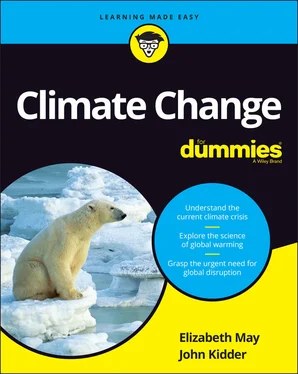
 The ozone layer in the Earth’s atmosphere is sort of like sunscreen for the planet — ozone intercepts some of the ultraviolet radiation that causes sunburn and skin cancer. The use of chlorofluorocarbons for refrigerants and other purposes caused the ozone layer to get thinner, resulting in an ozone hole over Australia and New Zealand. Partly as a result, Australians have the highest incidence of skin cancer on Earth. In 1987, the nations of the world came together to regulate the use of these chemicals, and their concentration in the atmosphere continues to decrease and the ozone layer is making a comeback. But now, increasing average temperatures in Australia and New Zealand are compounding these effects — one problem reduced by international cooperation is still affected by the lack of international cooperation on another.
The ozone layer in the Earth’s atmosphere is sort of like sunscreen for the planet — ozone intercepts some of the ultraviolet radiation that causes sunburn and skin cancer. The use of chlorofluorocarbons for refrigerants and other purposes caused the ozone layer to get thinner, resulting in an ozone hole over Australia and New Zealand. Partly as a result, Australians have the highest incidence of skin cancer on Earth. In 1987, the nations of the world came together to regulate the use of these chemicals, and their concentration in the atmosphere continues to decrease and the ozone layer is making a comeback. But now, increasing average temperatures in Australia and New Zealand are compounding these effects — one problem reduced by international cooperation is still affected by the lack of international cooperation on another. Some people look forward to the changes that the Arctic is experiencing. Now that so much sea ice has melted, ships can navigate the Arctic Ocean more efficiently, taking shorter routes. Without any sense of irony, oil companies now keenly anticipate being able to reach more fossil fuels below what used to be unreachable areas because of ice cover. Communities in the Arctic may be able to harness river flows that have been boosted or created by ice melt to run hydroelectric power. But these short-term economic developments can’t outweigh the negative planetary impacts.
Some people look forward to the changes that the Arctic is experiencing. Now that so much sea ice has melted, ships can navigate the Arctic Ocean more efficiently, taking shorter routes. Without any sense of irony, oil companies now keenly anticipate being able to reach more fossil fuels below what used to be unreachable areas because of ice cover. Communities in the Arctic may be able to harness river flows that have been boosted or created by ice melt to run hydroelectric power. But these short-term economic developments can’t outweigh the negative planetary impacts.